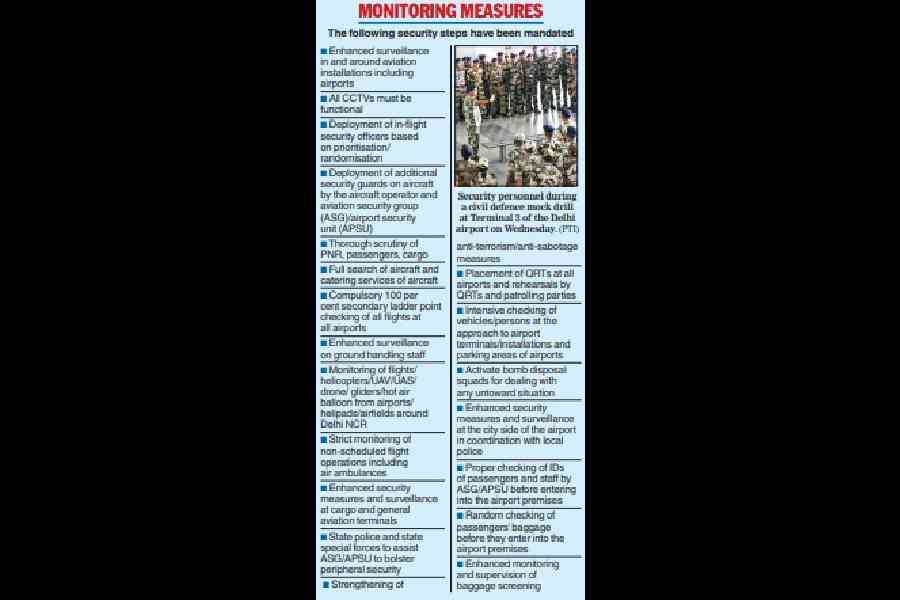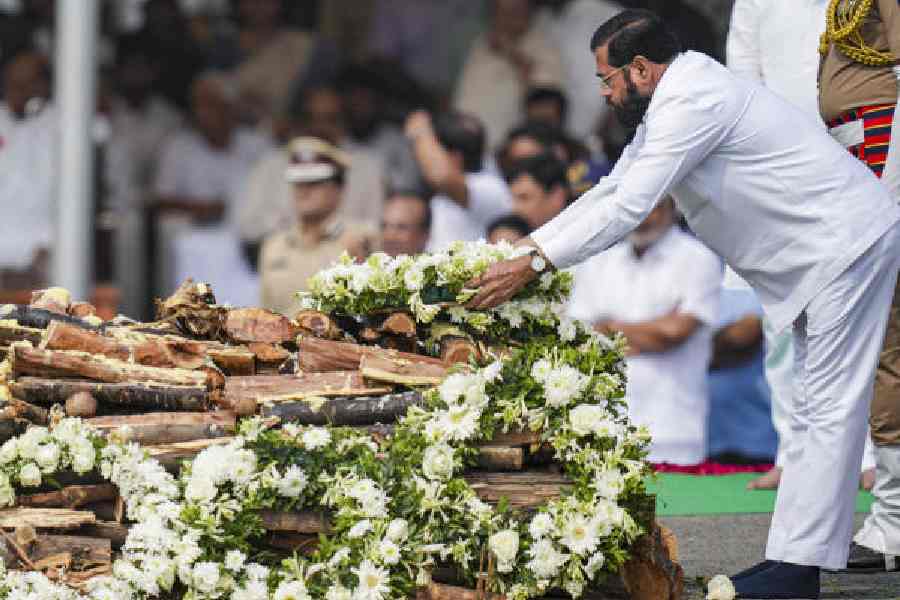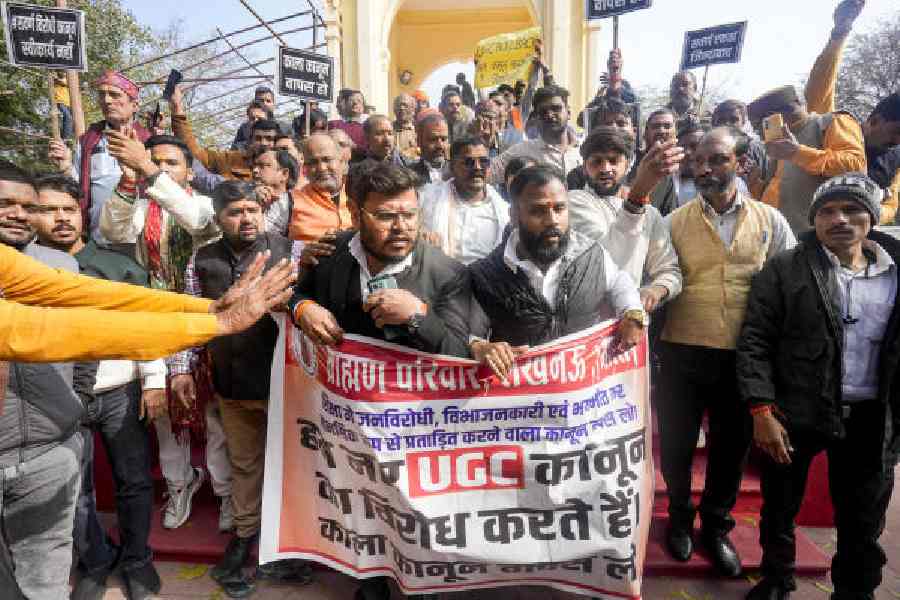Security has been beefed up further at all airports across the country, including Calcutta. In the air, pilots of civilian planes are on heightened alert and relying more on a conventional navigational system.
Pilots normally rely on the satellite-based global positioning system, or GPS, for navigation and sometimes on the more conventional inertial reference system, or IRS.
“The plane’s navigation system normally updates positions from GPS while flying. At times, when the system does not function properly, IRS is used,” said a senior pilot. “For the past few days, we have, at times, not been selecting GPS and relying more on IRS,” he said.
“In case of a cyber attack, GPS interference is easier compared to IRS. If GPS is interfered with, it can give wrong positions of the aircraft,” explained the pilot.
IRS is a self-contained system that uses sensors to determine an object’s position, velocity and speed, without relying on external signals.
Since the heightened tension between India and Pakistan, India has closed several airports and air routes, and pilots of all civilian airlines have been asked to keep extra vigil.
“Now, more frequent cross-checks are done with IRS compared to normal times. Usually, when we pass through stretches, like a part of Myanmar where GPS does not function properly, IRS is used,” said a pilot who flew from Calcutta to Bangalore on Friday. “But we are doing it now while flying from one city in India to another.”
“Now, if required, we are not selecting GPS on the system so that false GPS signals do not affect IRS,” he said. GPS is always used because it is required for multiple navigational purposes and is a more advanced system, he said.
On the ground, security has been enhanced at the Calcutta airport. The director-general of the bureau of civil aviation security (BCAS) held a virtual meeting with officials of all airports across the country on Friday to discuss enhanced security between May 8 and 18.
Leaves of all air traffic control personnel have been cancelled till further notice.
Passengers of domestic flights have to report to the airport three hours ahead of departure instead of two.
Other security measures include checking of vehicles at the Calcutta airport while they approach the ramp at the departure level and before entering the parking zone. Inside the airport, apart from the security check-in point, passengers are being scanned at the boarding gate, too, said an airport official.
Entry of visitors has been banned, and airport authorities have been asked to ensure that all CCTVs are functioning.
Non-scheduled flights, including air ambulances, have to be monitored strictly, a BCAS circular said. The aircraft and catering services have to be checked thoroughly before flights take off, it said.
Ports
Security at ports has also been enhanced.
T.K. Ramachandran, secretary, ministry of ports, shipping and waterways, virtually held a high-level security review meeting on Friday.
Leaves of all employees, including contractual staff at the Calcutta port have been cancelled from May 10 to 14. Pilots and dock pilots are on high alert and ready for emergency evacuation from both Calcutta and Haldia docks, officials said.
“On the digital front, cybersecurity measures will be enhanced, for which a detailed circular will follow,” said Rathendra Raman, chairman, Syama Prasad Mookerjee Port, Kolkata.
Regular security drills will be carried out with all stakeholders, ensuring preparedness for any contingency. In the event of planned or unplanned blackouts, port operations will be suspended to mitigate risks, he said.










